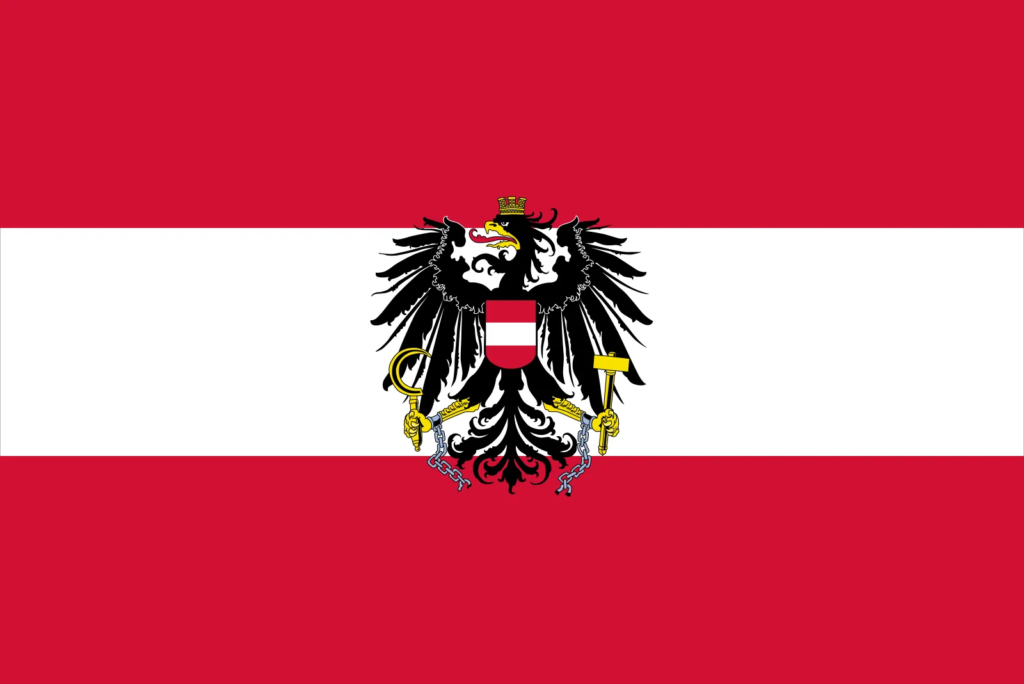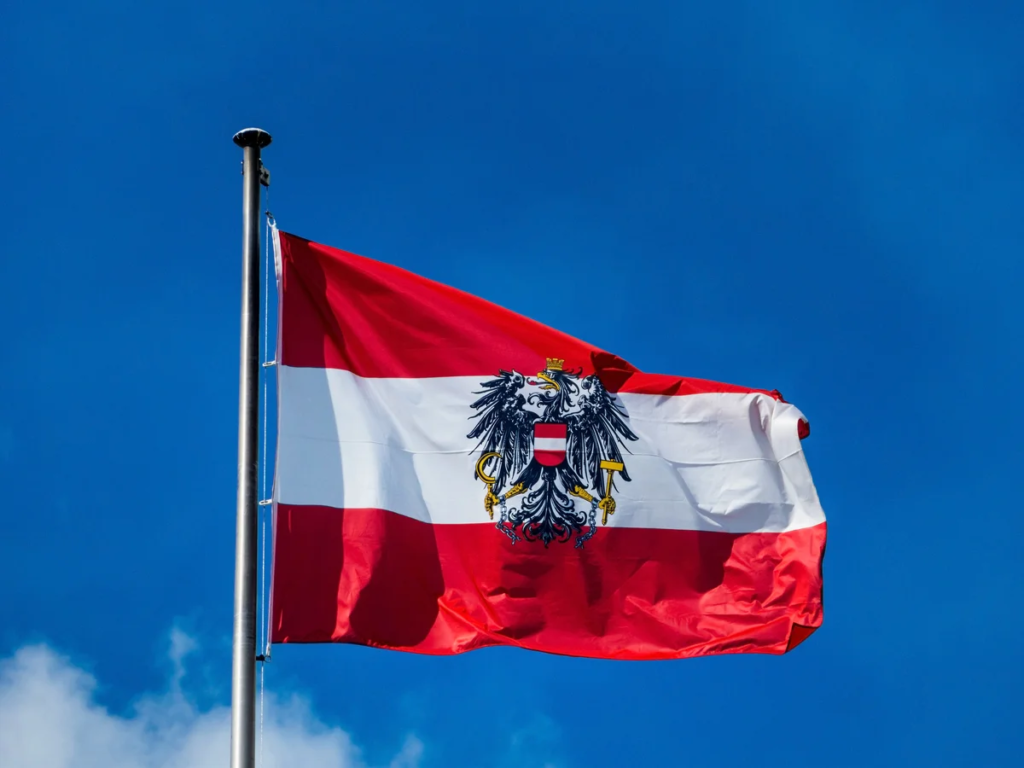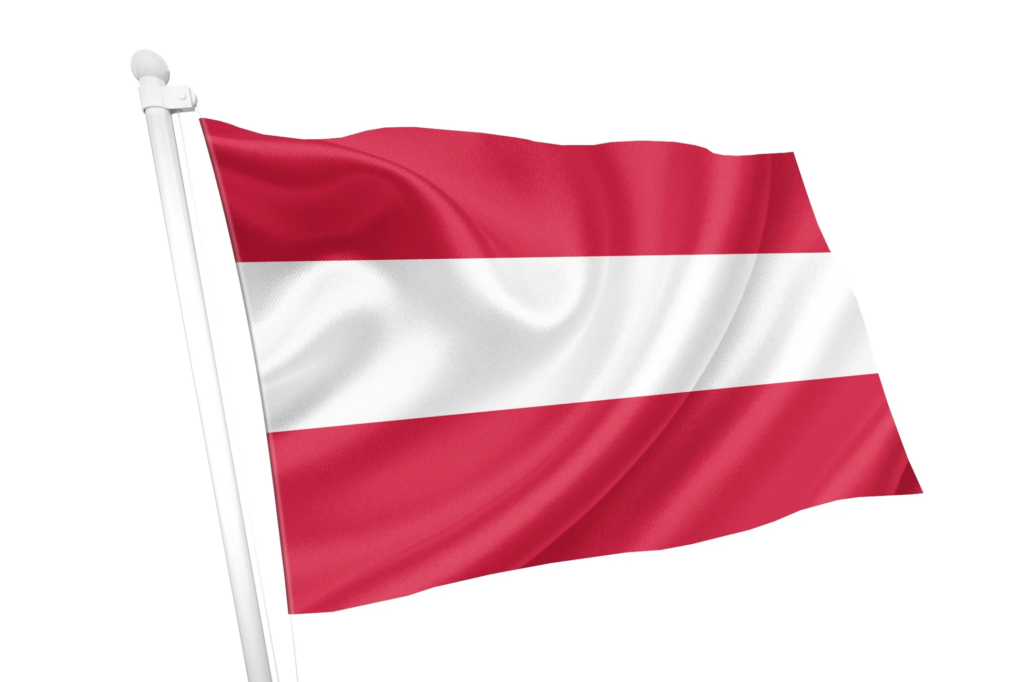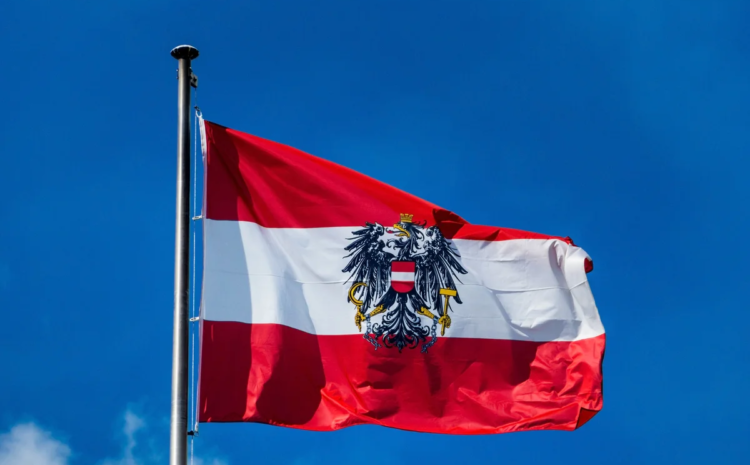“How the Austrian Flag Represents Unity and Independence”2024
“How the Austrian Flag Represents Unity and Independence”
Table of Contents
Introduction: The Importance of National Symbols
National flags are more than surely portions of cloth; they are amazing symbols that embody a rustic’s identity, history, and values. Austrian flag, The Austrian flag isn’t always an exception. With its pink and white horizontal stripes, the flag consists of deep historical importance, representing the kingdom’s concord and its extended adventure toward independence. flag of Austria, The Austrian flag is not virtually an illustration of the u. S. On a global degree, but a contemplated picture of the values, struggles, and triumphs that have original Austria as a rustic.
This article will find out the facts, symbolism, and cultural importance of the Austrian flag, emphasizing the way it represents the harmony and independence of the Austrian humans.

1. Historical Origins of the Austrian Flag
The Legend of Duke Leopold V
The origins of the Austrian flag date once more to the 12th century and are deeply rooted within the legend of Duke Leopold V. österreich flag, According to the tale, Leopold V of Babenberg, who dominated from 1177 to 1194, wore a white tunic at some point in the Siege of Acre in 1191 at some point of the Third Crusade. austria Hungarian flag, After the war, his tunic grew to be so drenched in blood that an exquisite strip spherical his waist, blanketed through his sword belt, remained white. flag Austria, This photo of crimson and white is an idea to be the foundation for the Austrian flag.
While the historical accuracy of this legend is debated, the tale plays an awesome characteristic in Austria’s national narrative. flag of the Austria, symbolizes bravery and sacrifice, key factors in the United States’s collective identification.
The Babenberg Dynasty and National Identity
The Babenberg dynasty is credited with the early improvement of Austria’s feel of national identity. flag in Austria, As a developing power in medieval Europe, the Babenbergs fostered a lifestyle of group spirit and power, its miles contemplated inside the use of the crimson and white sun shades. Austria-Hungary flag, This early association with these hues helped lay the foundation for Austria’s modern-day flag, which continues to rouse emotions of patriotism and concord.

2. The Evolution of the Austrian Flag
From the Holy Roman Empire to the Austrian Empire
Austria’s course to independence and team spirit came to be prolonged and complicated, heavily stimulated through its function in the Holy Roman Empire. Austrian Hungary flag, The flag went through numerous iterations because the political landscape of Europe was modified. austrian flags, During the Holy Roman Empire, Austria used numerous flags relying on the ruling monarchy and the territorial changes. However, the crimson and white colors remained an ordinary subject matter.
When Austria became a dominant electricity in Central Europe underneath the Habsburg monarchy, it accompanied flags that pondered its imperial stature. Austria flag, The Habsburg Empire’s flag included black and yellow, colors associated with the dynasty. austria hungry flag, However, the purple and white remained emblematic of the Austrian heartland, symbolizing the continuity of the use of the United States’s identity.
The Republic of Austria and Modern Flag Adoption
The cutting-edge red-white-purple Austrian flag changed into formally observed on May 1, 1945, following the giving up of World War II and Austria’s liberation from Nazi rule. flags of Austria, The adoption of the flag at this vital 2d in Austrian records symbolizes the kingdom’s skip decrease return to its identification and sovereignty after years of distant places management. flags of Austria-Hungary, The flag has grown to be a photo of Austria’s independence and its self-discipline to brotherly love and peace.

3. The Symbolism of the Austrian Flag’s Colors
Red: The Blood of Sacrifice
The shade purple within the Austrian flag is frequently associated with the bloodshed that the Austrian human beings have experienced sooner or later in their facts, especially in their combat for independence and sovereignty. Austria flag, Austria has been at the intersection of numerous European contentions, from the Napoleonic Conflicts to the battles for autonomy in the nineteenth and twentieth hundreds of years The pink stripes are a reminder of the sacrifices made by Austrian soldiers and civilians to shield their hometown and strengthen its future.
White: Purity and Unity
White, the center stripe of the Austrian flag, represents purity and harmony. Austria flag, In the context of Austria, purity displays the US’s desire for peace, integrity, and neutrality—values that Austria holds costly in its modern-day political stance. flag of Vienna, Austria’s neutrality, which was declared in 1955, after World War II, is one of the key components of its countrywide identity. austra flag, The white stripe symbolizes the team spirit of the Austrian people, transcending political and social divisions to hold a harmonious and cohesive society.
Together, the purple and white colorations constitute stability among sacrifice and peace, making the flag an effective example of Austria’s past struggles and its dedication to harmony and independence in the present.

4. The Flag as a Symbol of Unity
A Flag for All Austrians
The Austrian flag is a unifying symbol for all citizens, irrespective of their nearby or cultural backgrounds. austria flag emoji, Austria, like many European countries, has a large populace, with numerous cultural and ethnic agencies contributing to its countrywide fabric. austria flag map, The flag transcends the one’s versions, serving as a commonplace photo that every Austrian can rally around.
Whether displayed in the direction of countrywide holidays, wearing occasions, or international gatherings, the Austrian flag represents the shared values and opinions of the United States. austrian flag with eagle, It reminds Austrians of their collective identification and the importance of staying united in the face of internal and out-of-door traumatic conditions.
The Role of the Flag in National Celebrations
Austria has numerous country-wide holidays wherein the flag performs a relevant function, together with the Austrian National Day on October 26. In the intervening time, the pink-white-pink flag can be seen flying at some point in the u. S . A ., from government homes to personal homes, as Austrians come collectively to have a great time with their independence and the values that bind them as a country.
During primary wearing occasions, the flag is likewise a distinguished photo of national pride. When Austrian athletes compete on a global degree, the flag serves as a reminder of the team spirit and backbone of the Austrian human beings. austria falg, It is an effective logo of their collective spirit and perseverance.

5. The Flag as a Symbol of Independence
Austria’s Struggle for Sovereignty
Austria’s records are marked through intervals of profession and distant places rule. From the Napoleonic Wars to the Anschluss in 1938, at the same time as Austria turned out to be annexed by way of the usage of Nazi Germany, the dominion confronted big stressful situations in retaining its sovereignty. The Austrian flag represents the u. S .’s resilience and determination to reclaim its independence after intervals of distant places domination.
The flag’s re-adoption after World War II is especially huge. After years of professional and political upheaval, the re-reputation quo of the red-white-purple flag marked a brand new starting for Austria as an unbiased, sovereign nation. The flag, consequently, serves as a symbol of Austria’s hard-received independence and its strength of mind to preserve its political autonomy.
Neutrality as a Core Value of Independence
In 1955, Austria declared its eternal neutrality, a defining 2nd in the u. S . A .’s contemporary information. This choice now not great solidified Austria’s independence from foreign places have an impact on but moreover positioned America of the US as a peacekeeper in worldwide member of the circle of relatives. The Austrian flag, with its purple and white stripes, symbolizes this dedication to neutrality and independence, reflecting the u. S .’s choice to live free from outside entanglements at the same time as selling peace and cooperation.
Austria’s neutrality is a supply of national satisfaction, and the flag represents this critical element of the u . S . A .’s identification. In a global frequently divided with the useful resource of political alliances and conflicts, the Austrian flag stands as a reminder of the charge of peace, independence, and self-energy of will.

6. The Flag’s Influence on Austrian Identity and Patriotism
A Source of National Pride
For many Austrians, the flag is a delivery of pride and an image of their country’s achievements. Austria has made good-sized contributions to the fields of artwork, track, technological information, and sports activities, and the flag serves as a reminder of those accomplishments. The pink-white-red flag is flown with pleasure within the route of world events, and it’s far a symbol of Austria’s vicinity within the international community.
Cultural Significance of the Flag
The Austrian flag moreover holds cultural significance beyond its role in politics and country-wide identity. It seems in numerous types of artwork, literature, and songs, often as a picture of patriotism or a historical contemplated picture. The flag’s easy however powerful format has inspired artists and poets to find out the troubles of harmony, sacrifice, and independence of their artwork.

7. Conclusion: A Lasting Symbol of Unity and Independence
The Austrian flag is more than actually a country’s big picture; it is an instance of America’s lengthy records, its warfare for independence, and its dedication to concord. From its legendary origins with Duke Leopold V to its cutting-edge role as an image of neutrality and peace, the flag has remained a regular logo of Austria’s values.
The pink and white stripes serve as a reminder of the sacrifices made by generations of Austrians in pursuit of freedom and sovereignty. Today, the flag keeps uniting the state, reminding its residents of their shared identification and the importance of independence in a global that is increasingly interconnected.








Write a Comment